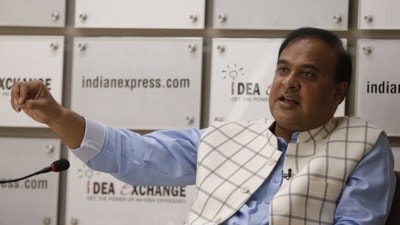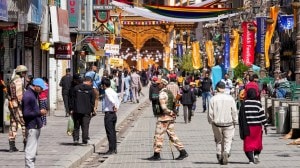Stay updated with the latest - Click here to follow us on Instagram
Those who think that all Patels are rich should come to our village: Hasmukh and Dharmishta
In a village near Vadodara, a Patidar family’s discontent spills over.
 Hasmukh and Dharmishta Patel on their farm
Hasmukh and Dharmishta Patel on their farm
On a humid Monday afternoon, Hasmukh Patel and wife Dharmishta are anxiously looking into a pit being dug at the end of their field. That very morning, their tube well of 15 years had conked off, forcing the couple to urgently call in the workers, given the delayed monsoon. The unexpected expenditure has meant a loan of Rs 2.5 lakh. That is in addition to an existing loan of Rs 15 lakh they had taken by mortgaging a part of their property to pay the tuition fees of their 24-year-old son, Mehul, who is wrapping up his last term in business administration in New Zealand.
Amid much chatter about the Patidar Anamat movement, Hasmukh, 49, and Dharmishta, 47, say they are tired of the community being labelled as affluent and rich. “Those who think that all Patels are rich should come to our village. We subsist harvest to harvest, with no bank balance or lavish lifestyles. Our children can’t study in courses or colleges of their choice,” Hasmukh says. Their daughter, Kinjal, 22, was unable to secure an admission into an MCA course in Vadodara’s MS University last year, as she fell short with her 82 per cent marks. Dharmishta says, “She is a student from the general category but others from reserved categories made it even with 45 per cent. Is that fair?”
[related-post]
The farmer couple from Sakarda village, about 30 km from Vadodara city, supports the Hardik Patel-led agitation of the Patidar community. “We own one bigha land. We have just sowed peppers after harvesting brinjals. We are dependent on this crop for our survival. We have nothing to fall back on, nor do our children. We do feel that if we have reservation, at least our children will make their lives better,” says Hasmukh. The couple also has three buffaloes on their farm so that the milk brings in additional income every day.
The village has about 3,500 homes, of which about 2,000 homes belong to Patels and other communities. The remaining 1,500 homes belong to Dalits, who live in a separate part of the village. Of the 100-odd Patel families, many young men work in private firms in Vadodara.
As more Patel farmers from adjoining fields join the discussion, the voices supporting Hardik Patel’s agitation grows stronger. Hasmukh’s uncle, Bhogilal, who at 67, still works in his farm, growing cabbage, says his son, unable to secure admission in colleges with average scores, dropped out of education in the late 1990s. He farmed for a few years and then moving to work as a peon in a private firm in Vadodara. “He does not want the same fate for his daughters and children. We save all our money for their school fees at an English medium school. Our only worry, however, is higher education. With competition increasing and no reservation, will they also be left out?” he asks.







